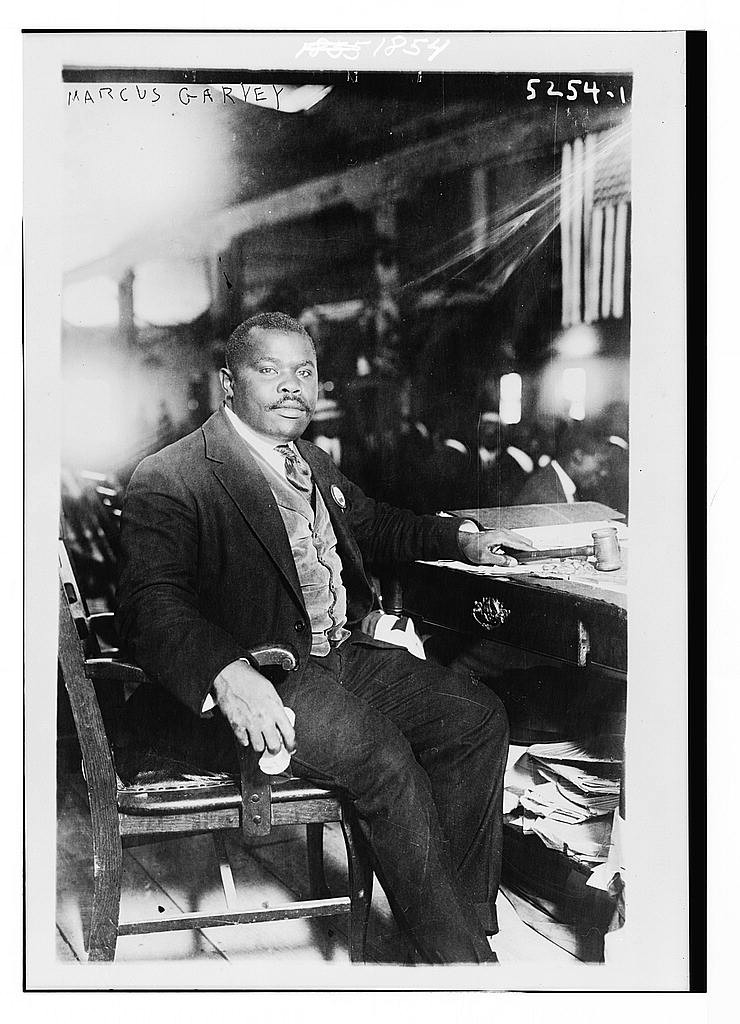Bob Marley’s “Redemption Song” stands as a timeless anthem of hope and liberation. Released in 1980 on his final studio album, Uprising, the song’s acoustic simplicity and powerful message have resonated with generations worldwide. But beyond its melodic beauty, the lyrics carry a profound depth, deeply rooted in the philosophy of Black pride and self-emancipation championed by Marcus Garvey. Understanding the connection between Garvey’s teachings and “Redemption Song” lyrics unlocks a richer appreciation for this iconic piece of music.
 Bob Marley performing Redemption Song
Bob Marley performing Redemption Song
The Garvey Connection: Seeds of Redemption in Black Nationalism
Marcus Garvey, a pivotal figure in early 20th-century Black history, advocated for Black nationalism and pride. He urged the African diaspora to unite and cultivate self-reliance, challenging the systemic oppression faced by Black people globally. Garvey founded the Universal Negro Improvement Association (UNIA) in 1914, which rapidly grew into a global movement with branches, including those in Canada. His philosophy emphasized mental liberation as crucial for true freedom.
 Marcus Garvey speaking passionately
Marcus Garvey speaking passionately
Garvey’s influence extended beyond political activism into spiritual realms for many. In 1930, the coronation of Ras Tafari as Emperor Haile Selassie of Ethiopia was seen by Garvey’s followers in Jamaica as the fulfillment of a prophecy about a Black king who would be a redeemer. This belief led to the Rastafarian movement, which revered Haile Selassie as divine. Bob Marley, born in 1945, embraced Rastafarianism in the 1960s and integrated Garvey’s philosophy of Black pride and self-determination into his music. Even the phrase “One love,” often associated with Marley, was a common closing remark in Garvey’s speeches.
“Redemption Song” Lyrics: Echoes of Garvey’s Call for Mental Emancipation
Written during a period of intense personal struggle as Marley battled cancer, “Redemption Song” became a powerful testament to resilience and inner strength. The lyrics directly echo a speech Garvey delivered in Sydney, Nova Scotia, in 1937. Marley, likely encountering Garvey’s words through the Black Man magazine or within Rastafarian teachings, transformed a key passage into the song’s core message: “Emancipate yourselves from mental slavery, none but ourselves can free our minds.”
 Bob Marley in concert, singing with emotion
Bob Marley in concert, singing with emotion
This central lyric in “Redemption Song” is a direct call to action, urging listeners to break free from the shackles of mental oppression. Garvey’s complete quote provides even greater context: “We are going to emancipate ourselves from mental slavery because whilst others might free the body, none but ourselves can free the mind.” He emphasized the power of the mind as the ultimate sovereign, arguing that those who fail to cultivate their minds risk becoming enslaved to those who do. This philosophy of self-reliance and mental fortitude is the bedrock of “Redemption Song”‘s powerful message. The song speaks to the experience of historical and ongoing oppression, symbolized by being “abducted into slavery,” yet it transcends victimhood by focusing on the power of individual and collective mental liberation as the path to true redemption.
UNIA in Nova Scotia: The Context of Garvey’s Inspiring Words
Garvey’s 1937 speech in Sydney, Nova Scotia, where he uttered the words that would later inspire “Redemption Song” lyrics, was part of a speaking tour to connect with UNIA chapters in Canada. Nova Scotia had a significant Black population with a history stretching back to the 17th century. By the early 20th century, many people from the West Indies migrated to Cape Breton to work in the steel industry, leading to the establishment of UNIA halls in Glace Bay, Sydney, and New Waterford. These communities actively embraced Garvey’s message of self-reliance and Black pride.
Garvey’s visit to Nova Scotia, and his speech in Sydney, occurred during a period when his movement was facing challenges. Despite this, the warm reception he received from the Cape Breton UNIA members and the powerful message he delivered highlight the enduring impact of his ideas. “Redemption Song,” decades later, carries forward this legacy, reminding listeners of the crucial importance of mental emancipation in the ongoing pursuit of freedom and equality.
Conclusion: The Enduring Legacy of “Redemption Song”
Bob Marley’s “Redemption Song” is more than just a song; it’s a cultural touchstone that encapsulates a powerful message of hope and self-liberation. By understanding the profound influence of Marcus Garvey’s philosophy on the “Redemption Song” lyrics, we gain a deeper appreciation for its enduring relevance. The song serves as a timeless reminder that true freedom begins in the mind, and that each individual holds the key to their own emancipation. “Redemption Song” continues to inspire and uplift, urging us all to actively participate in freeing ourselves from mental slavery and striving for a better future.

